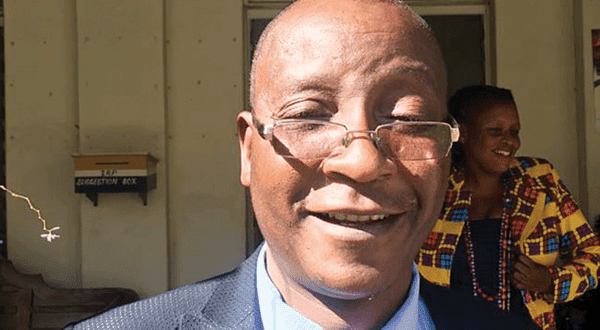THE MINISTER OF JUSTICE, LEGAL AND PARLIAMENTARY AFFAIRS (HON. ZIYAMBI): Thank you Madam President Ma’am. Madam President, I rise to give my Second Reading Speech for the Constitution of Zimbabwe Amendment (No. 2) Bill, [H.B. 23A, 2019].
Madam President, Hon. Senators, the Bill before you is the fruit of a review conducted by my Ministry with all interested stakeholders on the operation to date of the Constitution. The Constitution, as you know, entered into force in 2013, and has been amended once before. In the course of the review, certain imperfections and areas for improvement came to light, which I now have the honour of seeking your assistance to put right by means of this Bill before you.
The provisions of the Bill are adequately explained in the Explanatory Memorandum. My purpose is simply to bring to your attention the most salient features of the Bill and to explain the purpose or policy behind them. In doing so, I will not follow the order of the Bill but rather, the order of their importance.
Starting with the Presidium, it is proposed to do away with the “running mate” provision of the Constitution, which compels the President to be elected on the same ticket with two Vice-Presidents, a first Vice-President and a second Vice-President. This is contrary to the practice of our SADC partners, where the President appoints the other members of the Presidium. The President ought to have the freedom to choose, at any time, the Vice President he is comfortable to work with. Clause 3, 4 and 5 provide accordingly.
Madam President, of most concern to the female Members of Parliament is the proposal to extend the provision for the indirect election of an additional 60 female Members of the National Assembly from the life of the first two parliaments after the effective date, (22 August, 2013) to the first four parliaments after that date, that is to say until 2033. By that date, we hope that women will be able to participate on an equal footing with men in politics without the assistance of this provision.
Equally pleasing to female Members of Parliament is the amendment to Section 277 of the Constitution that was adopted in the National Assembly with cross-party support. I am talking about the proposal to provide that one third of the membership of all local councils be composed of women on the basis of indirect election using a party list system.
Madam President, Hon. Senators, I am sure that Hon. Senators will agree that our Local Government will greatly benefit by the contribution of mothers, wives and working women in the deliberations of local councils, for it is at this level that women encounter many of the challenges they are faced with at home, such as the provision or lack of provision of proper housing, water provision, sanitation, waste collection, clinical care and other services. Let me Madam President briefly address at this point the objection that this amendment was introduced despite its not having been notified 30 days beforehand, which is the general requirement for constitutional amendment Bills. I do so in the knowledge that my words here in this Chamber can be used in arguments before our courts about the validity of the amendment to Section 277.
Firstly, our Constitution does not speak to the case where Parliament, in the exercise of its sovereign legislative power, chooses to amend at Committee Stage additional sections of the Constitution not included in the original Constitutional Bill. If the Constitution had intended to limit the exercise of Parliament’s sovereign power in this way, it should have done so in express words.
Secondly, the 30 day waiting period for Constitutional Bills was intended to prevent the mischief of the Government in power “sneaking in” amendments to the Constitution without giving public notice or opportunity to comment upon them. In answer, let me say that a “mischief” must be attended by some “bad faith” on the part of Government to trick or hoodwink the public. Hon. Senators, there was no bad faith attaching to the introduction of this amendment.
Madam President, on ordinary Bills, the requirement is that you have a 14 day waiting period; neither our Standing Rules nor the Constitution say Hon. Members cannot bring in amendments at Committee Stage. It has been the practice and custom within the two Houses that Hon. Members at Committee Stage can propose amendments to the House and our Standing Orders do not prohibit that. So I hope that has been cleared. It was proposed by a member of the opposition and adopted by the whole National Assembly in good faith as a measure to promote the equality and well-being of the women of our country. On that basis, I can say that the introduction is constitutionally, politically and morally sound.
Madam President, I will now turn to the Judiciary. It is our opinion, widely shared by many that it is not proper or dignified for sitting judges of the Judiciary who are in line for promotion to a higher court to compete with each other by means of a public interview process. The Bill will exempt sitting judges from undergoing public interviews in these circumstances. Another amendment affecting the Judiciary is the one allowing judges to serve beyond 70 years of age to the age of 75, subject to a one time medical fitness report on the judge’s mental and physical capacity to continue in office until that age.
Madam President, the Prosecutor General is the subject of an amendment to Section 259 of the Constitution. We do not believe it is right to treat this post, albeit a very important one, on the same level as a member of the Judiciary in every respect, especially as regards his or her appointment and dismissal. Accordingly, it is proposed that the President should appoint him or her on the advice of the Judicial Service Commission alone. The question of the removal of the PG should not be the subject of consideration by a tribunal on the same footing as the removal of a judge, but a special tribunal with more limited scope for compelling the retention or removal of the PG.
Madam President, let me now draw your attention to the proposed amendment to Section 268 of the Constitution. It is noteworthy that in the Constitution, the Provincial Councils as presently constituted are top heavy with representatives from the national Parliament; namely the Senators elected from the province concerned, two Senator Chiefs from the province concerned, all the members of the National Assembly falling within the province concerned and so on. It is almost as if the provincial council is a clone of the national Parliament at provincial level. This contradicts the principle of parliamentary oversight of the operations of provincial, metropolitan and local authorities.
The amendment therefore limits provincial representation to mayors and chairpersons of urban and local authorities of the appropriate province and the ten indirectly elected persons drawn from the party-list for that province. Madam President, while I am still on this, let me also add that it does not mean that the Hon. MPs and the Senator Chiefs are prohibited from sitting at provincial council meetings. Just like the practice that is currently there, Hon. Senators and MPs can sit in council meetings, but they do not vote. What we are simply saying is they can sit but they should not vote because of the oversight role that they play at the national level.
Madam President, before concluding, I will briefly advert to two other amendments introduced in the House of Assembly, namely the removal of Clause 12, which would have delinked the delimitation of electoral boundaries from the census process and the removal of Clauses 17 and 18 on the establishment of the office of Public Protector. We now feel the Human Rights Commission should be fully capacitated to look into complaints of maladministration. With that Madam President, I move that the Bill be now read a second time. I thank you.



